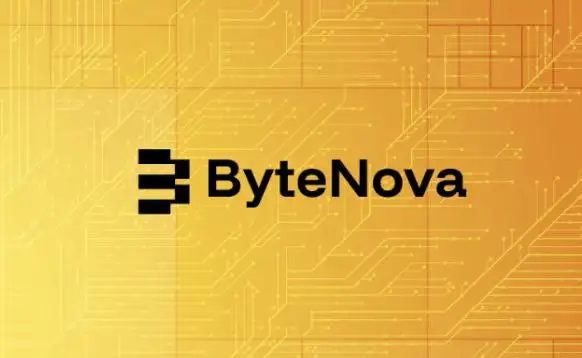
One institution taking a pioneering step in this direction is the University of Zurich. The university has announced a series of informational talks as part of its sixth edition of the “Deep Dive into Blockchain Summer School” course. These sessions, designed for students, professionals, and blockchain enthusiasts, highlight the growing need for formal education in this rapidly changing field.
Education in blockchain and digital assets goes beyond theoretical understanding; it equips individuals with the practical knowledge necessary to contribute to and innovate within the industry. From decentralized finance (DeFi) to cryptographic security, structured learning programs provide a foundation that self-study alone often lacks.
The University of Zurich’s initiative serves as a testament to the importance of institutional involvement in crypto education, ensuring that individuals across Latin America, Asia, Africa, and Europe have access to expert-led discussions tailored to their time zones.
In collaboration with Meta Pool—a platform specializing in liquid staking and DeFi services—this initiative also reflects the significance of partnerships between academic institutions and industry leaders.
By bridging the gap between theoretical knowledge and real-world application, such collaborations help participants gain a deeper understanding of decentralization, blockchain security, and financial innovation.
Beyond Zurich, other universities are also recognizing the value of blockchain education. The Massachusetts Institute of Technology (MIT) has been a global leader in crypto and blockchain research, offering courses and research initiatives through its Digital Currency Initiative (DCI).
MIT's commitment to fostering innovation in blockchain technology has helped develop some of the most significant advancements in the field, including Bitcoin security improvements and digital currency policy research. Through its hands-on approach, MIT ensures students and researchers alike have the opportunity to work with cutting-edge blockchain solutions, positioning them at the forefront of the industry.
Similarly, the National University of Singapore (NUS) has emerged as a key player in blockchain education. With its dedicated Blockchain Research & Development Lab and various academic programs focused on distributed ledger technologies, NUS is equipping students with the skills needed to lead the next wave of digital transformation in the financial sector.
The university’s engagement with industry players and government initiatives further solidifies its role in shaping the future of blockchain technology. Its interdisciplinary approach combines law, finance, and computer science, ensuring that students receive a well-rounded education in blockchain applications.
Another noteworthy example is the University of Oxford, which has also recognized the increasing significance of blockchain technology. Through its Saïd Business School, Oxford offers executive education programs focused on blockchain strategy.
These programs cater to business leaders, entrepreneurs, and policymakers who seek to understand how blockchain can revolutionize industries. By emphasizing the real-world impact of blockchain and offering case studies, Oxford ensures that its students are well-equipped to implement blockchain solutions in various sectors.
As demand for skilled professionals in the crypto space continues to grow, institutions like the University of Zurich, MIT, NUS, and Oxford play a crucial role in preparing the next generation of blockchain experts. These educational programs not only help individuals navigate the complexities of digital finance but also encourage responsible adoption of blockchain technologies.
With businesses and governments increasingly exploring blockchain-based solutions, a knowledgeable workforce is essential to drive innovation while ensuring compliance and security. Moreover, formal education helps combat the misinformation surrounding cryptocurrency. Many still view the industry as a speculative bubble or associate it solely with volatile markets.
However, structured learning programs help demystify blockchain technology, illustrating its potential beyond price speculation—ranging from supply chain transparency to identity verification and decentralized governance.
Those eager to expand their knowledge and career opportunities in crypto should seize the chance to participate in these invaluable discussions and educational programs. As the blockchain industry matures, education will be the key to fostering innovation, reducing risks, and ensuring a sustainable, well-informed crypto ecosystem.
On-Chain Media articles are for educational purposes only. We strive to provide accurate and timely information. This information should not be construed as financial advice or an endorsement of any particular cryptocurrency, project, or service. The cryptocurrency market is highly volatile and unpredictable.Before making any investment decisions, you are strongly encouraged to conduct your own independent research and due diligence
Tags :

0 Comments
Show More

Circle USDC, led by Nima Elmi, holds early talks with the Nigeria's Ad Hoc Committee on Cryptocurrency.

Volatility drives trader behavior. See how major exchanges use targeted competitions to channel market chaos into structured trading volume.

Backed by NVIDIA and a16z, ByteNova is unlocking the full potential of Web3 and Edge AI
On-Chain Media is an independent, reader-funded crypto media platform. Kindly consider supporting us with a donation.
bc1qp0a8vw82cs508agere759ant6xqhcfgcjpyghk
0x18d7C63AAD2679CFb0cfE1d104B7f6Ed00A3A050
CBaXXVX7bdAouqg3PciE4HjUXAhsrnFBHQ2dLcNz5hrM
Contains the last 12 releases